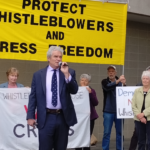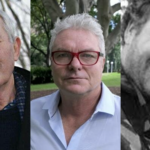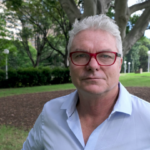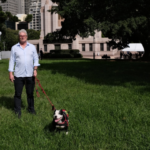AG Conveniently Delivers Whistleblower Reform Too Late for McBride and Boyle

“Reforms to the Public Interest Disclosure Act are long overdue and significant reform is required to restore the Act to a scheme that provides strong protection for public sector whistleblowers,” said attorney general Mark Dreyfus in a statement as he was about to table amendments to it.
Introduced on 30 November, the Public Interest Disclosure Amendment (Review) Bill 2022 amends the Public Interest Disclosure Act 2013 (Cth) (PID Act), which is a piece of legislation drafted by Dreyfus the first time he held the position of chief lawmaker back in 2013.
The bill delivers on 21 of the 33 recommendations made by the Moss review of the PID Act in a 2016 report. The Turnbull government then ignored the inquiry findings, while the Morrison government responded to the report in late 2020, accepting 30 recommendations but acting upon none.
Dreyfus made it known long before the May federal election that he’d be cleaning up the Act if in office, stating that he knew it was lacking when he oversaw its enactment, which was a welcome assertion, especially amongst supporters of three high profile whistleblowers then being prosecuted.
And on being reinstated as AG, Dreyfus inherited these prosecutions, which involved Bernard Collaery, David McBride and Richard Boyle. And although he dropped the Collaery case, which didn’t trigger the Act, McBride and Boyle were forced to argue their defences under the dodgy laws.
After the fact
The Moss inquiry found a number of areas in which the PID Act is lacking. The main issues with it are that the path a whistleblower must take is too convoluted, and that they’re not properly protected when taking it, while as was the case with Collaery, intelligence leaks aren’t covered.
In his second reading speech on his amendment bill, the AG outlined that it aims to strengthen protections for disclosures and witnesses, including against reprisals. And he added that these are the first amendments to be made ahead of a greater overhaul next year.
The amendment bill has since been sent for Senate committee review, so that it might be passed prior to establishing the National Anti-Corruption Commission mid-next year. Although Dreyfus has complained that in pushing back the reporting date by one week, the Greens have jeopardised this.
Too late for some
Dreyfus dropped the whistleblower case against ACT barrister Bernard Collaery at a point in the case when the whistleblower looked set to have a lot of the secrecy measures imposed on his prosecution lifted.
The AG brought a halt to the case using the power he has under section 71 of the Judiciary Act 1903 (Cth). However, he’s declined to do the same in regard to Boyle and McBride, telling the Alliance Against Political Prosecutions that their cases don’t warrant intervention.
So, ATO whistleblower Richard Boyle, who’s facing 24 charges over having exposed an illegal and since reformed tax office practice, was made to argue his public interest disclosure defence under the flawed laws in October. The South Australian man is now awaiting the outcome.
While ADF whistleblower David McBride was blocked from arguing his defence under the faulty laws, as, even though the ex-military lawyer’s case is shrouded in secrecy, the prosecution moved to block his witnesses and remove some of his evidence, making it impossible to mount his defence.
McBride is now facing charges that could see him spend the rest of his life behind bars: a similar fate that awaits Boyle if his PID defence is unsuccessful.
So, as the attorney general is redrafting the PID Act for its major overhaul to ensure it covers future public sector whistleblowers next year, McBride and possibly Boyle are likely to be standing trial on criminal charges as the laws that failed to protect them are corrected.







